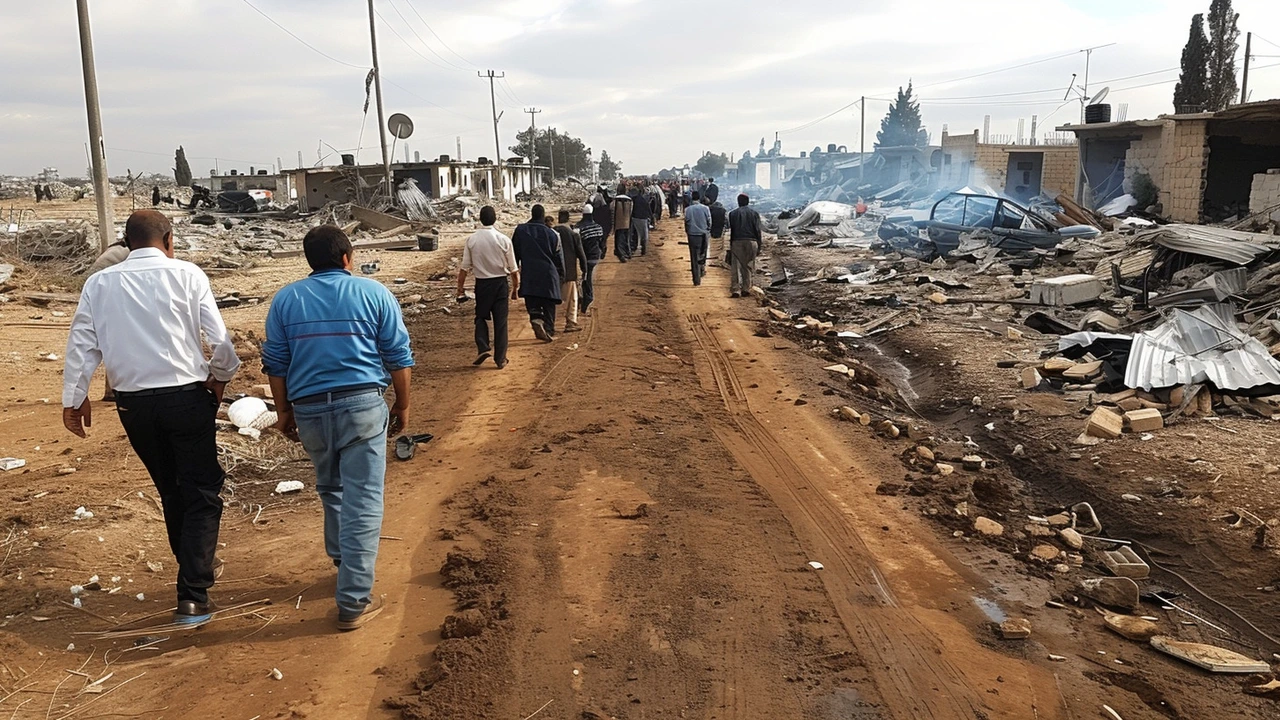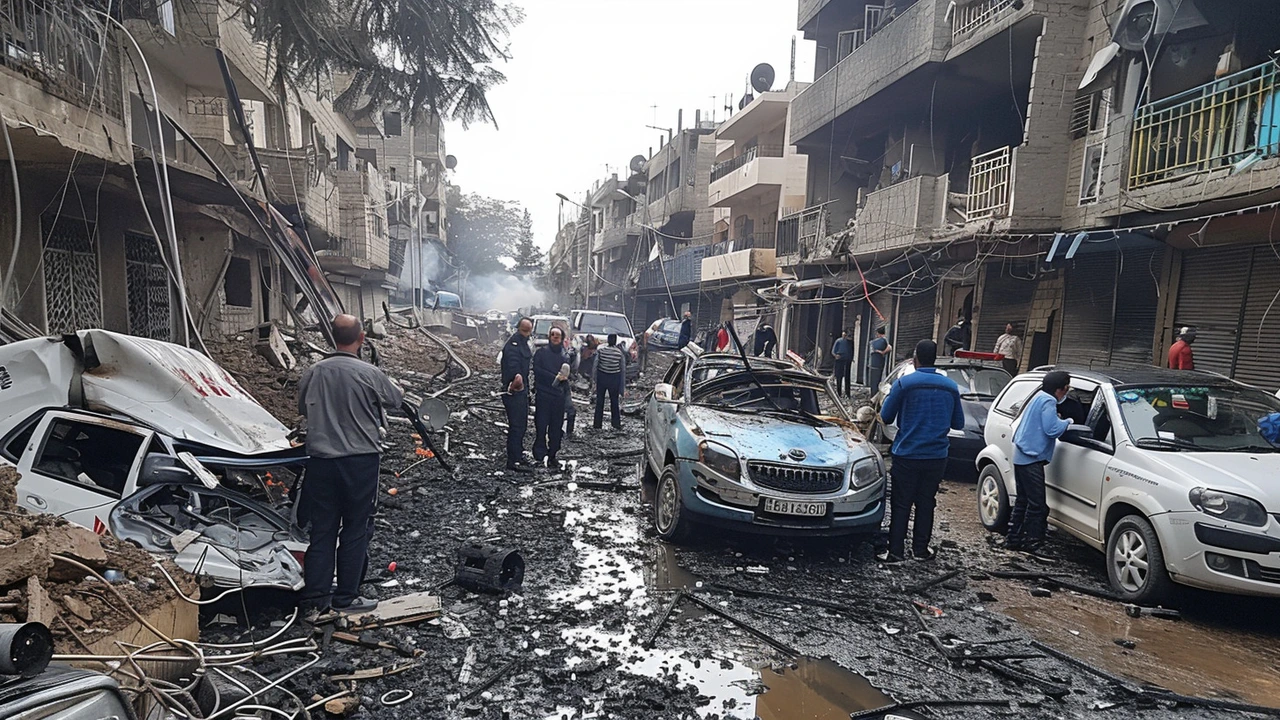UN Security Council Meeting on Rafah: Analyzing the Aftermath of Devastating Israeli Airstrike

UN Security Council Meeting to Address Rafah Tragedy
In light of the recent devastating events in Rafah, the United Nations Security Council is gearing up for an urgent session to deliberate on the consequences of a deadly Israeli airstrike. The strike, which targeted a refugee camp, left 45 Palestinians dead and another 200 injured, deepening the already severe humanitarian crisis in the region. This incident has drawn global outrage and significant diplomatic attention, compelling the highest international body to address the deteriorating situation.
U.N. humanitarian chief Martin Griffiths minced no words in condemning the attack, labeling it 'utterly unacceptable'. His condemnation was in direct response to Israeli Prime Minister Benjamin Netanyahu, who referred to the airstrike as a 'tragic mistake'. Griffiths was quick to point out that such an explanation offers little comfort to the victims and the community that is reeling from the loss.
Details of the Airstrike and Its Immediate Consequences
The strike occurred in the densely populated refugee camp of Rafah, a place already grappling with the hardships of displacement and conflict. Israeli forces claimed that the aim was to target two senior Hamas officials, who were purportedly using the camp as cover. However, the fallout of the strike was far-reaching, affecting countless innocent lives. The Gaza Health Ministry reported that fires broke out in several tents, exacerbating the already dire situation for displaced individuals taking shelter there.
The Israeli military's justification for the airstrike on the grounds of targeting Hamas militants did little to placate international outrage. Various nations, including France and Qatar, joined the U.N. in condemning the attack. Calls for an immediate ceasefire and adherence to international humanitarian law have been amplified, echoing through diplomatic corridors around the world.
International Reactions and Diplomatic Implications
The global community's response to the Rafah strike highlights a growing impatience with the ongoing cyclical violence between Israel and Hamas. French President Emmanuel Macron was among those calling for an urgent de-escalation of hostilities, emphasizing that civilian lives must be protected. Similarly, Qatar's government issued a strong statement condemning the attack and urging for a peaceful resolution to the conflict.
Griffiths's remarks struck a chord internationally, pressing the need for accountability and the protection of civilians in conflict zones. His statements have fed into a larger narrative advocating for humanitarian considerations to take precedence in military engagements, something that resonates deeply within U.N. circles and beyond.
The Broader Implications for Gaza
The humanitarian crisis in Gaza has been further highlighted by the Rafah incident. The region has been a flashpoint of conflict for years, with periodic escalations resulting in significant casualties and destruction. The infrastructural damage in Rafah adds to the existing challenges for aid agencies working on the ground to provide essential services. The airstrike not only inflicted immediate physical harm but also instilled fear and uncertainty among the civilian population.
The precarious living conditions in Gaza have been a longstanding issue, compounded by blockades and recurring violence. The Rafah strike underscores the urgent need for a comprehensive and lasting solution to the Gaza conflict, one that accounts for both political and humanitarian dimensions. The current situation serves as a reminder of the fragile balance in the region and the potential for rapid escalation into broader conflict.
The Role of the UN Security Council
The U.N. Security Council finds itself at a pivotal juncture, tasked with navigating the complex landscape of Middle Eastern geopolitics while addressing humanitarian concerns. This meeting is anticipated to facilitate dialogue among member states, potentially paving the way for a resumption of peace talks. However, the path forward remains fraught with challenges, particularly given the entrenched positions and mistrust between the conflicting parties.
As the Security Council convenes, there are high expectations for concrete outcomes that extend beyond mere condemnation. The international community will be closely monitoring these discussions, hoping for resolutions that lead to tangible improvements on the ground. The emphasis will likely be on establishing mechanisms for civilian protection and ensuring that such incidents do not recur.
A Call for International Solidarity
The Rafah airstrike serves as a stark reminder of the human cost of conflict and the pressing need for international solidarity. The U.N.'s involvement underscores the importance of a collective approach to resolving issues that transcend borders. The global call for a ceasefire and respect for humanitarian law reflects a shared commitment to peace and stability.
Moving forward, it is crucial for the international community to support initiatives aimed at alleviating the suffering of Gaza's civilian population. This includes sustained humanitarian aid, infrastructure rebuilding, and diplomatic efforts to mitigate the conflict. The Rafah incident has galvanized global opinion, highlighting that the world is watching and demands accountability.

Conclusion: The Path Ahead
The upcoming U.N. Security Council meeting on Rafah is more than a diplomatic engagement; it is a critical forum for addressing the deep-seated issues that perpetuate the cycle of violence in Gaza. The stakes are high, with countless lives depending on the outcomes of these discussions. As global leaders converge to find solutions, the hope is that this tragedy will serve as a catalyst for meaningful change and a step towards lasting peace.